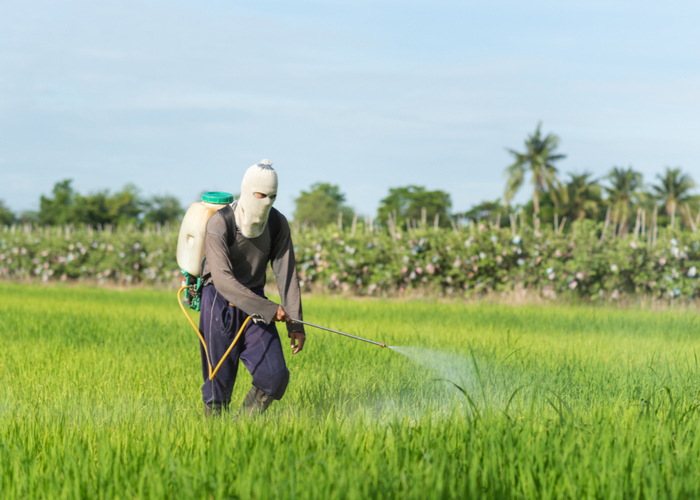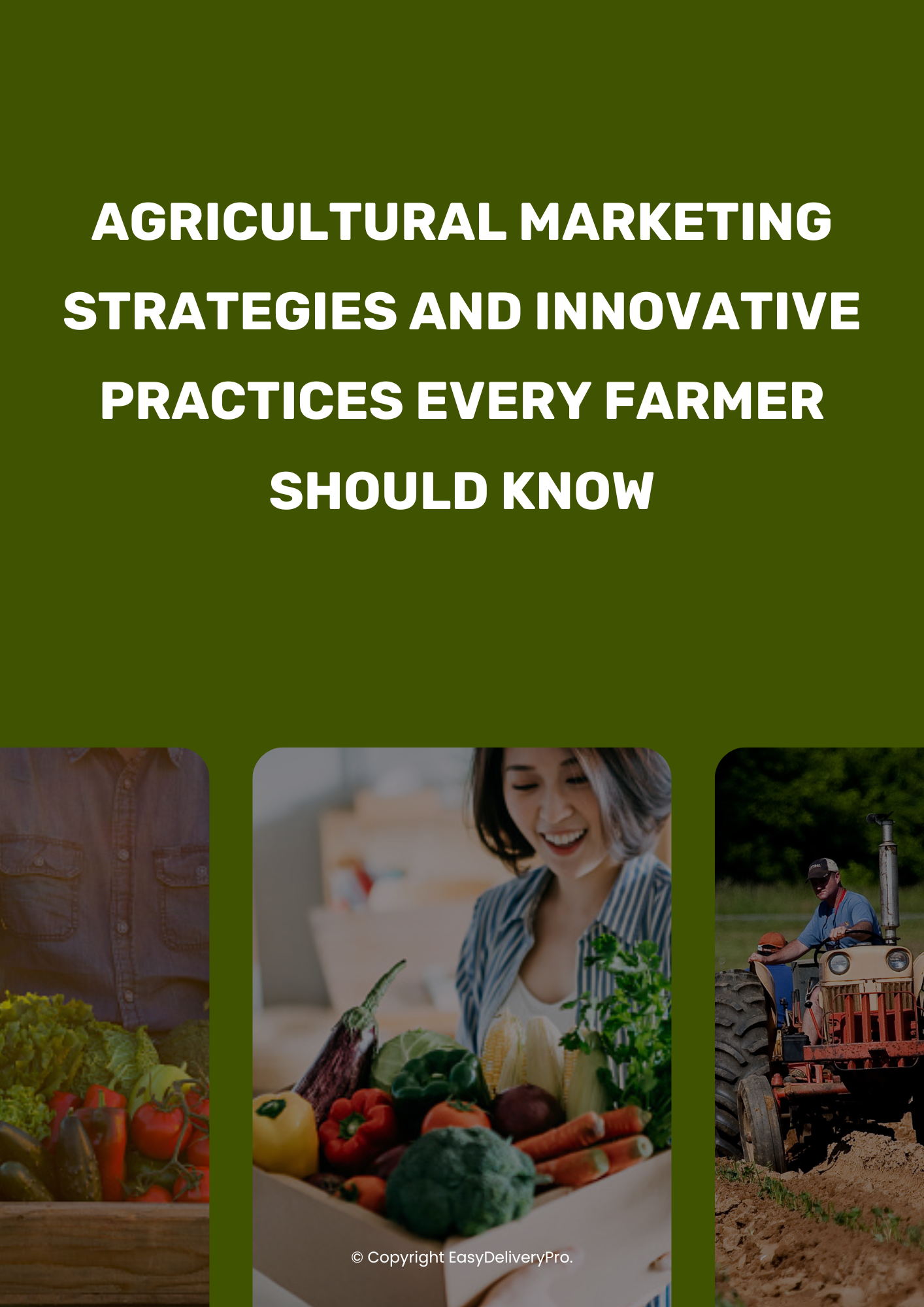Discover how small farmers are innovating to compete with giants like Amazon Fresh, emphasizing sustainability, community, and local authenticity.
Most people think of agriculture as the act of growing crops and raising livestock. However, agriculture is more than that. Agriculture is a process that involves producing and harvesting food, plants, and animal products in an efficient and sustainable way. Sustainable agriculture is a type of agriculture that considers the environmental, economic, and social implications of farming practices. In this blog post, we will discuss six benefits of sustainable agriculture.

Before we jump into the benefits of sustainable agriculture, it’s important to understand what sustainable agriculture is. Sustainable agriculture is a type of agriculture that focuses on producing food, plants, and animal products in an environmentally sustainable way. This means that farmers consider the long-term effects of their farming practices on the environment. Farmers who practice sustainable agriculture use techniques that protect the environment, such as crop rotation and using natural pest control methods.
Sustainable agriculture is also economically sustainable. This means that farmers consider the financial implications of their farming practices. Farmers who practice sustainable agriculture use techniques that are economically feasible, such as using recycled materials and investing in energy-efficient machinery.
Read More: The Benefits Of Farm Management Software
Agricultural runoff is one of the leading causes of water pollution. Fertilizers and pesticides used on crops can easily wash into rivers and lakes, where they can damage ecosystems and harm wildlife. In addition, agricultural runoff can contribute to the growth of harmful algae blooms, which can poison fish and other aquatic creatures. As a result, it is essential for farmers to practice sustainable agriculture in order to prevent water and soil pollution. Sustainable agriculture involves using techniques that prevent the runoff of pesticides and fertilizers into waterways. For example, farmers may use crop rotation to avoid over-fertilizing the soil, or they may plant cover crops to help hold the soil in place. By using these techniques, farmers can help protect our waterways and ensure that our food supply is safe.
Soil erosion is a major problem for farmers around the world. Every year, millions of tons of topsoil are lost to wind and water erosion, making it difficult to grow crops and raising the risk of floods and landslides. Fortunately, there are a number of ways to prevent soil erosion. One of the most effective is sustainable agriculture. Sustainable farmers use techniques that protect the soil, such as crop rotation and contour plowing. Crop rotation prevents the soil from becoming depleted of nutrients, while contour plowing helps to prevent runoff by trapping water on the field. These and other sustainable agriculture practices help to keep the soil healthy and productive, reducing the risk of erosion.
Read More: How To Implement Big Data Analytics In Agriculture
Sustainable agriculture is an important tool in the fight against climate change. Farmers who practice sustainable agriculture use a variety of techniques that promote the growth of different plant and animal species. This helps to create a diverse and resilient ecosystem that can better withstand the effects of climate change. For example, sustainable agriculture techniques such as crop rotation help to improve soil health and reduce the need for chemical fertilizers. In addition, sustainable farming practices can help to reduce greenhouse gas emissions by promoting the growth of trees and other plants that act as carbon sinks. As the world faces the challenges of climate change, sustainable agriculture will become increasingly important in ensuring our food security.
One of the key goals of sustainable agriculture is to protect and improve the environment. This includes both the natural environment and the welfare of animals who live on farms. Farmers who practice sustainable agriculture use a variety of techniques that minimize negative impacts on both animals and ecosystems. For example, they may rotate crops to prevent soil depletion and choose plant varieties that are tolerant to drought or pests. They may also provide clean water and shelter for their animals, as well as pasture rotation to ensure that animals have access to fresh grass. By using these animal-friendly practices, farmers can produce food in a way that benefits both the environment and the welfare of their animals.
Sustainable agriculture reduces costs. This is because farmers who practice sustainable agriculture use techniques that reduce the need for inputs, such as using recycled materials and investing in energy-efficient machinery.
Sustainable agriculture also improves soil quality. This is because farmers who practice sustainable agriculture use techniques that improve the structure of the soil, such as crop rotation and contour plowing.
Because sustainable agriculture improves soil quality, it also improves food production. This is because crops grown in healthy soils are more resistant to pests and diseases. This means that farmers can produce food with less waste.
Read More: Take Your Farm Business To The Next Level With Delivery Management Software
Sustainable agriculture protects public health. This is because farmers who practice sustainable agriculture use techniques that reduce the risk of foodborne illnesses, such as using organic fertilizers and investing in food safety training.
Sustainable agriculture also benefits farmers. This is because farmers who practice sustainable agriculture are able to produce food in an environmentally sustainable way. This means that they can sell their products to consumers who are interested in buying food that is good for the environment.
Read More: Winter Survival Tips For The Cattle Farm
Sustainable agriculture also benefits communities. This is because sustainable agriculture encourages the growth of local economies. This is because farmers who practice sustainable agriculture are able to sell their products to local markets. This means that money stays within the community, which benefits the local economy.
The benefits of sustainable agriculture are vast and varied. They include environmental, economic, and social benefits that impact both the individual farmer and society as a whole. By implementing sustainable agricultural practices, we can ensure that future generations will have access to the same resources that we have today. Thank you for reading!
Discover how small farmers are innovating to compete with giants like Amazon Fresh, emphasizing sustainability, community, and local authenticity.
Drive customer traffic to your online farm store with email marketing, social media, in-person tactics, and our tailored solutions. Boost your agricultural business now!
Elevate your winter chicken care with expert tips. Keep your flock warm, healthy, and productive during the chilly months.
